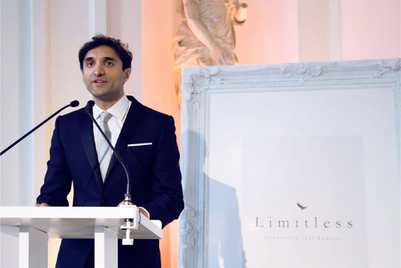
Who am I? This is a question almost universally asked at one time or another in our lives. Most of us think we have a pretty robust idea of who we are—our likes, dislikes, our good and bad habits, the things that we believe define us and set us apart from the rest of the human race. Our individuality.
Which is why when roaming the digital landscape and you are served that ad for “pec implants” you might wonder, “Why the hell am I getting that ad”? This can create a twinge of anxiety, anxiety that somehow through our digital behavioural footprint, our most private behaviours are revealed and reflected back to us. We don’t think the ad is relevant, but worry that maybe it is.
This is a by-product of 'Big Data Anxiety' as Kate Crawford from Microsoft’s Social Media Collective has termed it. She sees it as ”the fear that all the data we are shedding every day is too revealing of our intimate selves but may also misrepresent us”.
So the question here is, how does my data depict me on public networks and how could it be used? The truth is more interesting and complex than you probably realize. Take Facebook. Half the world's Internet population (1.2 billion), uses it monthly. Each of those users has created a digital doppelganger made up of behavioural, preference and demographic data. But we already know this.
However, recent advances in machine learning tools mean a number of models are now being built that can predict your attributes, behaviours and desires through that publicly available data, sometimes with uncanny accuracy.
For example, a study recently released from the Proceedings of National Academies (PNAS) demonstrated that by only using Facebook Likes they were able to predict individuals traits and attributes such as ethnic origin (95 per cent accuracy), substance use (65 per cent to 73 per cent accuracy), whether the subject's parents remained together until the individual was 21 (60 per cent accuracy), and many others.
The study even included psychological traits such as satisfaction with life, intelligence, emotional stability and the Big Five personality traits of extraversion, openness, neuroticism, conscientiousness and agreeableness. This had more varied success, with a 39 per cent to 78 per cent accuracy range (mapped against a questionnaire).
But let me repeat, all this by just mining your Facebook likes, nothing else. And the study’s creators believe that as the machine learning tools improve so will their predictive accuracy.
Now a technology company, Five Labs, has built an app based on the principles of the PNAS study that allows you to generate and compare your Facebook personality with those of your friends and public figures. It uses an “open vocabulary approach”, using the language from your wall posts, to predict the Big Five personality traits.
My Facebook personality is most like Jimmy Wales, the founder of Wikipedia and least like Mahatma Gandhi. Five Labs claims in feedback from users only 10 per cent of people who have given it a whirl strongly disagree with how it defines them. [A lot of people believe astrology horoscopes too. -Ed.]
While it is a fun app, the implications of it and the PNAS study are far reaching for us. The idea that I can be almost accurately profiled and predicted because I liked “Thunderstorms” (apparently a predictor for high intelligence), or that because I use certain words in my posts I can be defined as outgoing, curious, easygoing, friendly and sensitive, is somewhat surreal.
For advertisers it presents a new level of insight. Neurotic people worry about their health, so they might be more interested in vitamins and so on.
This move towards sociocultural tools supplementing big-data analysis to better understand and predict behaviour more accurately is the next wave of big data. In theory, our digital data footprint reflects our actual tastes and activities, but with greater accuracy than our own memories.
We should then expect better personalization of advertising and services from organizations and these should be aligned to our perception of ourselves.
However, that is not always the case. Back to big data anxiety and the “pec implant”. There is the old saying that you are what you do, and in the case of our digital doppelganger it may be our actions that reflect the true us more than our own perceptions of ourselves.
Kristian Barnes is CEO of Vizeum Asia-Pacific


.jpg&h=268&w=401&q=100&v=20250320&c=1)

.jpg&h=268&w=401&q=100&v=20250320&c=1)




.jpg&h=268&w=401&q=100&v=20250320&c=1)